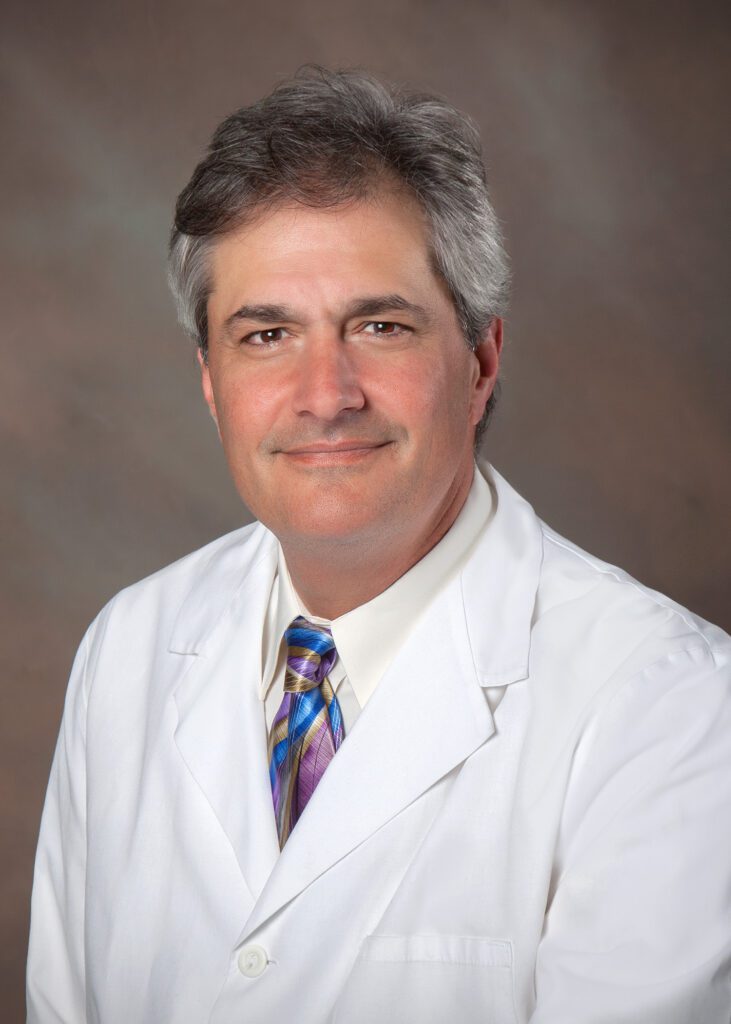BayCare’s Dr. Kenneth Essig Provides Insight About Prostate Cancer Diagnoses at Earlier Ages

by REBEKAH PIERCE
Think prostate cancer is just an “old man’s disease”?
Think again.
According to the American Cancer Society, prostate cancer is one of the most common cancers in men. About 1 in every 8 men will be diagnosed with it at some point in their life. And for some men, it might happen sooner than they expected.
While prostate cancer is largely considered a disease of the elderly, incidence rates are rising rapidly among men younger than 50, as they are in older men. The average age for a diagnosis is 67, and while prostate cancer isn’t as common in men younger than this age, it can be more dangerous.
We spoke with Dr. Kenneth Essig, a board-certified urologist at BayCare Medical Group, to learn more.

CFHN: How common is prostate cancer in men younger than 50?
Essig: Prostate cancer is relatively rare in men under 50. Most studies suggest only 1 to 4 percent of all patients with prostate cancer are less than 50 years old.
CFHN: What are the key risk factors for early-onset prostate cancer?
Essig: The greatest risk factor for prostate cancer in general is family history.
CFHN: Are there different symptoms or warning signs in younger men compared with older patients?
Essig: Typically prostate cancer presents with no symptoms, only abnormalities of PSA (a blood test that measures the level of prostate-specific antigen). This is true of younger and older patients.
CFHN: At what age do you recommend men begin screening, especially if they have a family history of it?
Essig: The current recommendation is to screen patients starting at the age of 45. If there is a strong family history, screening can be started at the age of 40.
CFHN: How does early detection change the outcome for younger patients?
Essig: When detected earlier, prostate cancer is far more effectively treated. Prostate cancer that has already spread is typically associated with poorer outcomes.
CFHN: Is the disease typically more aggressive when found in younger men?
Essig: Prostate cancer in younger men has not been shown to be more aggressive. However, younger men will be living longer with cancer, so they are more likely to be affected throughout their lifetime.
CFHN: Do younger patients tend to respond differently to treatment compared with older patients?
Essig: There have been no studies that suggest younger men respond differently to treatment than older men.
CFHN: What are the most common treatment options for younger men diagnosed with prostate cancer?
Essig: Typical treatment options that we discuss include radiation or robotic surgery. Younger patients are clearly more concerned about sexual function. On the other hand, younger patients can have 30 years of life to worry about a recurrence and many of those patients want to have the prostate totally removed. It is a very individual choice.
CFHN: How do you weigh treatment versus active surveillance for someone younger than 50?
Essig: We tend to offer more aggressive treatment and suggestions for younger men due to the fact that they will have decades of life ahead of them to live with the prostate cancer.
CFHN: Do you think prostate cancer awareness campaigns reach younger men effectively?
Essig: Many of the ad campaigns that try to reach younger patients fall of deaf ears, and are less than effective at encouraging patients to get early screening in their 40s. Advertising campaigns will have limited success and younger patients given that this is not a major concern for people in their 30s and 40s unless they have a very strong family history/experience with prostate cancer. I often see patients in their early 40s who have a father with prostate cancer. This is an immediate red flag that sends them to be checked/screened.
CFHN: What advice would you give a man in his 30s or 40s who isn’t thinking about prostate health yet?
Essig: I would strongly advise men in their 40s with family history to begin screening early in their 40s and encourage their family members to do the same. Screening for prostate cancer in the 30s is likely too early.
The takeaway? As with most cancers, the best defense against prostate cancer is a strong offense. Eat a healthy diet, quit smoking, exercise regularly, and — most importantly — get screened early if you have a family history of prostate cancer. It could very well save your life.
